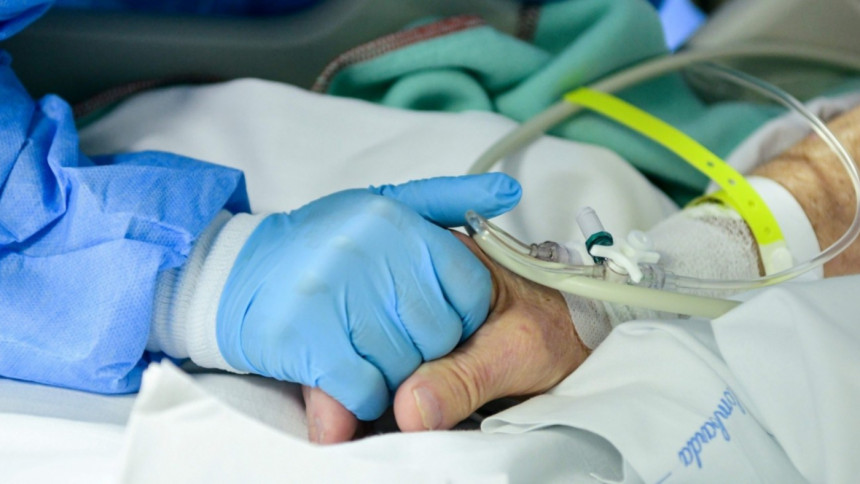Not a day passes by in Bangladesh without news of death due to a horrible road crash. Each year, countless lives are lost and many more are left disabled. In 2019, the 4,219 reported road crashes caused around 4,628 fatalities, and maimed around 8,621 more, according to the Shipping and Communications Reporters’ Forum. Despite intermittent lockdowns, this year has been no exception. Access to timely and quality pre-hospital and hospital care would significantly curb fatalities from road accidents and prevent permanent disabilities. Yet we see little to no governmental action to ensure emergency medical services (EMS) for road accident victims.
There are many barriers to accessing EMS for a road accident victim in Bangladesh. First, paucity of quality ambulance services means that victims are rarely transferred from the accident spot to the hospital on time and even if they are, the pre-hospital care required during this time is never provided given the poor structural state of our ambulances, and the absence of trained technicians/paramedics in the ambulance. Second, the phenomenon of private hospitals refusing treatment on the ground of financial inability or that the case is a medico-legal case and hence the patient should go to a government hospital, deprives the victim of essential EMS within the Golden Hour (60 minutes) leading to death or permanent disability. Third, even if they are admitted by the hospital authorities, the dismal state of emergency departments of hospitals in Bangladesh mean that the victims hardly ever get quality EMS, resulting once again in death or permanent disability.
In 2016 a bus helper was run over by his own bus. A good Samaritan named Saif Kamal took the victim to three different private hospitals, only to be turned away. By the time he took help from a nearby police station and reached the fourth hospital, close to two hours had elapsed and the victim was declared deceased. This is only too common a phenomenon in Bangladesh. In 2018, following a public interest litigation filed by Bangladesh Legal Aid and Services Trust (BLAST) and the good Samaritan in 2016, the High Court Division presided over by Justice Syed Reefat Ahmed and Justice Farid Ahmed, delivered a judgment sanctioning Guidelines (framed by the Ministry of Health pursuant to court orders) for EMS for Road Accident Victims and Protection of Good Samaritans.
The guidelines were a product of extensive consultations with experts and stakeholders and took approximately two years to prepare and fine-tune. The guidelines made it mandatory for hospitals to provide EMS to road crash victims irrespective of financial ability of the victim or the medico-legal nature of the case. It imposed express obligations on hospitals to screen, stabilise and then transfer if they did not have the requisite facilities to treat a particular victim. It imposed express obligation on the police to assist in transferring a victim to the hospital in the absence of availability of express ambulance services. It required the health ministry to lay down infrastructure and manpower requirements and targets for emergency departments of hospitals and issue directions for road ambulance services within a given timeframe. It made creation of an emergency department a condition of the licence given to hospitals. It created a monitoring cell within the health services department to implement the guidelines and monitor compliance.
The High Court, in this landmark judgment, expressly gave the guidelines the force of law until appropriate legislation is enacted, thus, in effect, plugging the legislative gap we had in mandating EMS. This was the first step to establishing a specific legal and regulatory framework for EMS for road crash victims in Bangladesh.
With regard to implementation of the guidelines, the judgment mandated wide dissemination of the guidelines through publication in the official gazette and through electronic and print media, and expressly required such dissemination to start within a period of two months from the date of receipt of a certified copy of the judgment. But alas, despite over two years having elapsed, the guidelines are yet to see the light of day!
This inexplicable governmental inertia in implementing the guidelines, despite a judgment from the Supreme Court of Bangladesh mandating it, forced BLAST to file proceedings for contempt of court, which are currently pending hearing.
Improvement of public health is a fundamental responsibility of the State under Article 18 of the Constitution. Road crashes have clearly emerged over the years to be a major public health crisis in Bangladesh that demands urgent attention. For any real change to take place, we need political commitment to this issue. Successive court orders cannot take us very far on their own. This issue must be made a national priority by all three organs of the State. Apathy of the Executive and the Legislature would mean sustained loss of lives and permanent disabilities that are wholly preventable.






